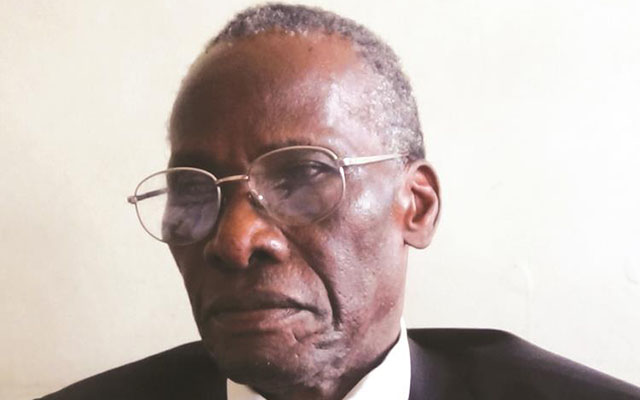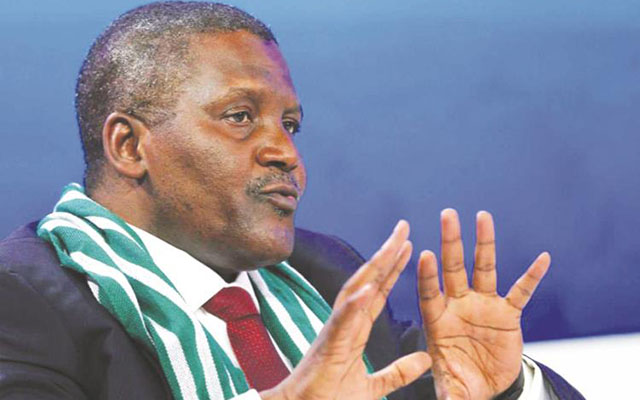Is our socialism dead?

Darlington Musarurwa Deputy News Editor
IT has to be a thoroughly unpleasant experience, if not traumatic, to have your parent(s) sit you down every evening for lessons on morality. For some of us whose parents believed in the virtues of the stick or rod as a handy aid to teach moral values, we will gladly take the stick – anytime. Well, Cde Don Muvuti’s kids had to put up with the late comrade’s daily lectures on hunhu or ubuntu.
It is one of those things that as a young person you will have to dreadfully live through only to thankfully realise its importance later in life. Moral lessons, like medicine, especially traditional medicine, are bitter but very curative. Such traits begin to build up the character of the comrade who was interred at the Heroes Acre on Wednesday. Even when he had the political power and means to amass as much wealth as he possibly could during his life, Cde Muvuti seemingly lived his life on the straight and narrow.
“The President saw it fit that because of his dedication to duty and hard work without expecting any monetary benefits, Cde Don Muvuti be buried at the Heroes Acre,” were the words delivered by ZANU-PF’s Secretary for Administration, Cde Ignatius Chombo, at the late hero’s family home in St Martin’s on Monday.
In a country that has become decidedly materialistic, rare comrades such as Muvuti, who obstinately stuck to their ideological beliefs, provide a flicker of hope for the country’s revolution. Zimbabwe was born out of the barrel of the gun wielded by cadres, most of who had been ideologically oriented in communist citadels such as Russia (then the Union of Soviet Socialist Republics) and China.
By implication, the nation state that resulted from the revolution was a Socialist Republic working for the good of the generality of Zimbabweans, or so it should have been. But Zimbabwe arguably did not outrightly repudiate some of the tenets of capitalism, which had been inherited from the Rhodesian era.
Though revolutionary leaders, especially first-generation revolutionaries, have tried to preach and remain true to their ideals, the ostentatious wealth that comes with capitalism has been difficult to resist. As a result, the tunic suits – most often a symbol of socialist cadres – have given way to tailor-made Giorgio Armani and Loui Vuitton suits.
Community-hood, which is not only a socialist attribute, but a quintessentially traditional African concept, has slowly given way to individualism. Today, the brutal realities of the excesses of capitalism confront us at every turn. They confront us in uptown restaurants, where a minority delights in sushi and prawns, while countless guests in downturn restaurants are content with poorly prepared sadza served with a heavy dose of vegetables and charred pieces that pass for meat.
They confront us in uptown pubs where the few well-heeled in our midst are set back by thousands of greenbacks in one night, while the bulk of downtown imbibers have to make do with unwieldy brown plastic containers of opaque beer. They even confront us at political rallies, where monstrous cars driven by the elite are parked to form a mock car show of sorts in front of poor countrymen.
While this is not necessarily criminal, such contradictions in a republic that is supposed to be socialist are nothing short of worrying. And this is why comrades such as Muvuti and a few of his peers, living or buried at the sacred shrine, are so symbolic at this juncture in our revolution. It is increasingly likely that ZANU-PF is going to form the next Government after the 2018 harmonised elections, as the number of potential voters registered so far, particularly in the ruling party’s strongholds, looks ominous for the opposition.
The two provinces that the opposition had a stranglehold on in 2013 have only managed to register 273 617 potential voters, while the remaining eight provinces – including Mashonaland Central, Masvingo and Matabeleland South, where ZANU-PF swept all seats – now have a whopping 1,15 million voters in their book. In Mashonaland East and Mashonaland West, where ZANU-PF did not manage to have a clean sweep, it only dropped a single seat in either province.
If this is not telling enough, then nothing is. Most importantly, this means elections no longer pose an existential question for the ruling party, rather the party now has to plan for a comprehensive plan to “lift” the people from poverty. And quite instructively, this entails destroying the current architecture of an obscenely capitalist system that is threatening to undermine the foundations and ideals of the Zimbabwean State.
Just because the majority of Zimbabweans trust ZANU-PF with power – in the same manner the Chinese have trusted the China Communist Party (CPC) with power since 1921v- this does not mean that they do not have grievances about their welfare. And this must be addressed.
Contradictions between capitalism and socialism are not peculiar to Zimbabwe. When economic reforms began in China, the same contradictions became more apparent. Not only were there a threat for China’s socialism, they were also a threat to China’s economic reform process. Trying to come up with an economy that was planned and at the same time embracing free enterprise became problematic.
Shenzhen, which was designated as a Special Economic Zone (SEZ) – where conditions, as dictated by Communist and Socialist teachings, were relaxed – evolved as centre of capitalism, which inevitably set tongues wagging. As writer Wu Xiaobo noted in his book “China Emerging (1978-2008): How Thinking About Business Changed”, “other than a five-star Chinese flag, you cannot even find a single bit of socialism in this place”.
The Chinese were even warned to guard against the reappearance of “compradores”, those people who sold out the country by serving as intermediaries for Western businesses. Thankfully, the CPC, under the able leadership of its leader Deng Xiaoping, managed to clarify these contradictions and provide a platform for future Chinese economic growth.
“The basic route of the party will not change for one hundred years. In determining the standards by which we judge our work, we should consider whether or not the result is beneficial to the productivity and growth of our socialist society. Is it beneficial to raise the people’s standard of living?
“The basic quality of socialism is to release productivity, develop productivity, eliminate exploitation, eliminate extremism. Its aim is to finally arrive at common prosperity,” said the Chinese leader.
He added: “China should be on guard against rightism, but even more importantly, it should prevent leftism.”
Yes, as was, and still is, the aspiration of many ZANU-PF cadres, the revolution must stay on course. ZANU-PF should, contrary to individualist tendencies of some comrades we see today, “aim to arrive at common prosperity”.
Also, ZANU-PF should necessarily reject rightism (the excesses of capitalism) and, by equal measure, leftism (impractical ideological leanings that hold the country back). Corruption and indiscipline are arguably the biggest challenges to the aspirations of the revolution today. Similarly, the CPC has over the years faced the same challenges, but it has been ruthless, especially under the leadership of Xi Jinping.
ZANU-PF has to act and if need be “through blood and iron” to crush the two new cancers of indiscipline and corruption, lest they continue to eat away the party and the revolution from within. It is arguable that the inertia in implementing Government policy at times is blocked by comrades who have interests in those targeted sectors.
So, it has become urgent for the party to address these pressing issues. The party must continue to spawn selfless, blameless and incorruptible cadres like Cde Don Muvuti, or we are doomed.
- Feedback: [email protected]













Comments